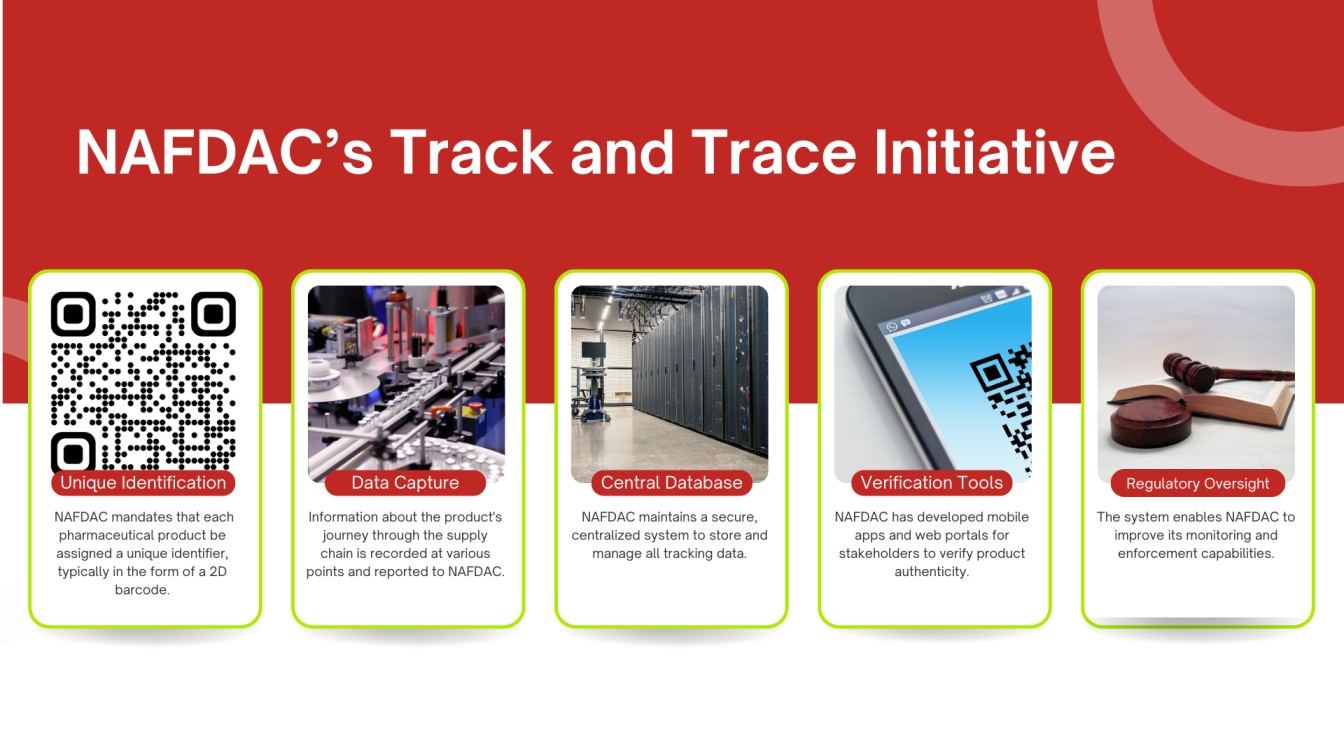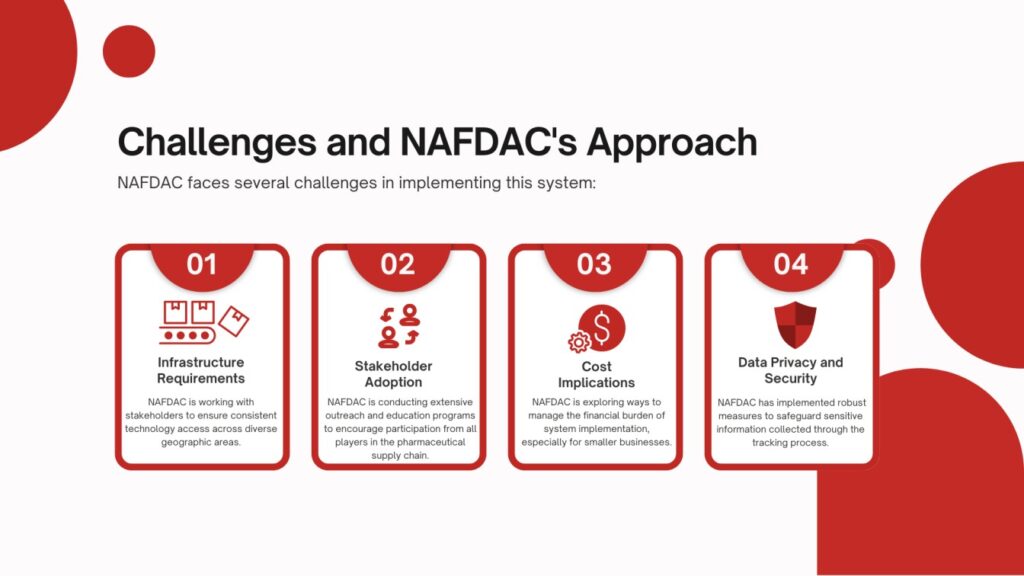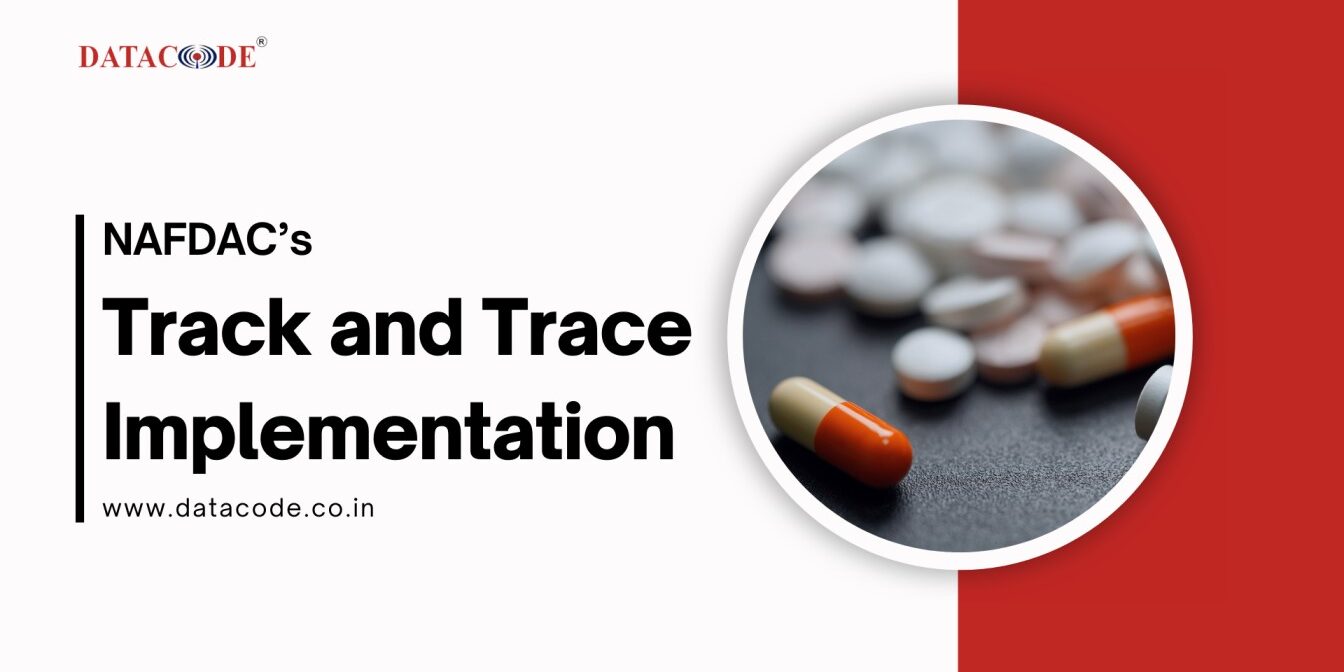NAFDAC's Track and Trace Implementation
The National Agency for Food and Drug Administration and Control (NAFDAC) in Nigeria has spearheaded a groundbreaking initiative to improve drug safety and combat counterfeit medicines through the implementation of a national Track and Trace System for pharmaceuticals. This innovative approach aims to enhance supply chain integrity, protect public health, and boost confidence in the Nigerian pharmaceutical market.
NAFDAC's Track and Trace Initiative
In response to this challenge, NAFDAC has developed and begun implementing a comprehensive Track and Trace System. Key features of this system include:
- Unique Identification: NAFDAC mandates that each pharmaceutical product be assigned a unique identifier, typically in the form of a 2D barcode.
Data Capture: Information about the product’s journey through the supply chain is recorded at various points and reported to NAFDAC.
Central Database: NAFDAC maintains a secure, centralized system to store and manage all tracking data.
Verification Tools: NAFDAC has developed mobile apps and web portals for stakeholders to verify product authenticity.
Regulatory Oversight: The system enables NAFDAC to improve its monitoring and enforcement capabilities.

NAFDAC's Traceability Benefits and Impact
NAFDAC’s implementation of traceability system is expected to yield several benefits:
- Reduced Counterfeits: By making it harder to introduce fake products into the legitimate supply chain, NAFDAC aims to significantly reduce the prevalence of counterfeit drugs.
- Improved Recall Efficiency: NAFDAC can now quickly identify and recall affected products in case of quality issues.
- Supply Chain Optimization: Better visibility into inventory levels and product movement can lead to more efficient distribution, supporting NAFDAC’s regulatory functions.
- Enhanced Consumer Trust: The ability to verify product authenticity can boost public confidence in NAFDAC-regulated pharmaceuticals.

Challenges and NAFDAC's Approach
NAFDAC’s track and trace implementation faces several challenges:
- Infrastructure Requirements: NAFDAC is working with stakeholders to ensure consistent technology access across diverse geographic areas.
- Stakeholder Adoption: NAFDAC is conducting extensive outreach and education programs to encourage participation from all players in the pharmaceutical supply chain.
- Cost Implications: NAFDAC is exploring ways to manage the financial burden of system implementation, especially for smaller businesses.
- Data Privacy and Security: NAFDAC has implemented robust measures to safeguard sensitive information collected through the tracking process.

Conclusion
NAFDAC’s Track and Trace System for pharmaceuticals represents a significant stride towards ensuring drug safety and quality in Nigeria. As the system matures under NAFDAC’s guidance, it has the potential to serve as a model for other regulatory agencies facing similar challenges in developing countries.
Continued collaboration between NAFDAC, industry stakeholders, and technology providers will be crucial for the long-term success of this initiative and its impact on public health in Nigeria.
SS DATACODE® offers traceability solutions for fulfilling the regulatory requirements of NAFDC’s Track and Trace system. To know more about NAFDC’s traceability of narcotics and pharmaceutical products in Nigeria we request you get in touch with us at [email protected] or visit our Contact Us page.
OR






